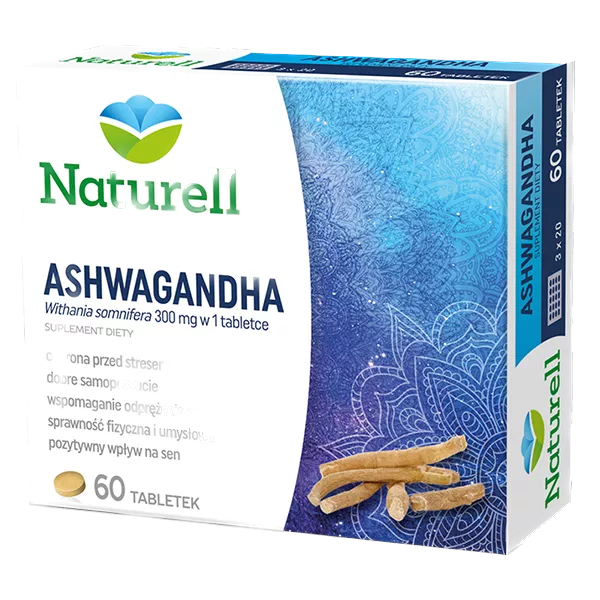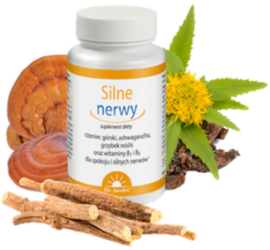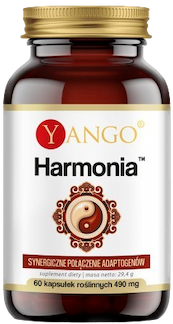Ashwagandha - effects, properties, contraindications
Ashwagandha is an interesting plant with great health-promoting potential. What can it help you with?


Learn more about our editorial process
.

Learn more about our editorial process
.

Learn more about our editorial process
.

Learn more about our editorial process
.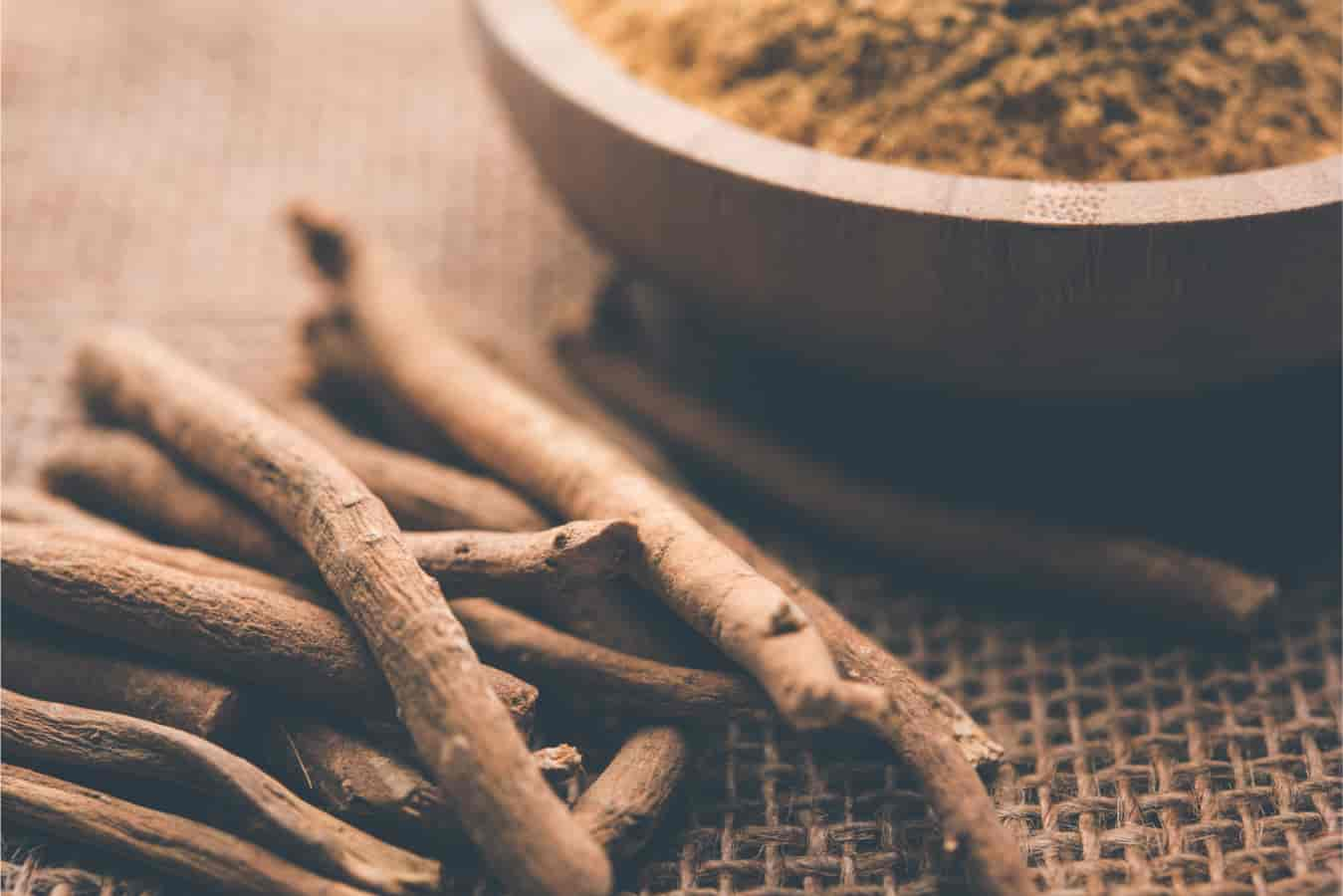
Why you can trust us
Articles on Natu.Care are written based on scientific research, data from government websites and other reliable sources. The texts are written in cooperation with doctors, nutritionists and other health and beauty experts. Articles are reviewed before publication and during significant updates.
.Learn more about our editorial process
.Information about advertisements
Content on Natu.Care may contain links to products from the sale of which we may receive a commission. When creating content, we adhere to high editorial standards and take care to be objective about the products discussed. The presence of affiliate links is not dictated by our partners, and we select the products we review ourselves completely independently.
.Learn more about our terms and Conditions
.This name has messed up many a language! Ashwagandha (read: ashwaganda) - in the sacred language of India and Hinduism ashva means 'horse' and gandha - 'fragrance'. Why such an exotic name? The fresh roots of this herb emit a horse-like smell and it was once believed that by consuming ashwagandha, one could develop horse-like strength and vitality!
Horse health... it makes sense! For several years now, there has been a growing interest in ashwagandha and its remarkable properties. Together with Dr. Witold Tomaszewski, M.D., we will introduce you to the most important information about ashwagandha.
Description of contents:
- Ashwaghanda - what is it? .
- Ashwaghanda - properties and health-promoting effects .
- Ashwaghanda supplementation - what to look out for when choosing a product?
- Ashwaghanda supplementation - what to look out for when choosing a product?
- Ashwaghanda and other drugs - interactions .
- Contraindications to the use of ashwaghanda .
- Side effects with ashwaghanda use .
- FAQs - frequently asked questions .
See also:
- Ashwagandha dosage
- Ashwagandha in the morning or at night .
- Ashwagandha when does it start working?
- With what not to combine ashwagandha?
- Indian ginseng
- Adaptogens
- Supplements for athletes
Ashwagandha - what is it?
.
Ashwagandha is a plant also known by the names Indian ginseng, witania or comfrey. It is used in Ayurvedic medicine for its health-promoting properties. It is an adaptogen - it belongs to a group of plants with specific effects on the human body.
Ashwagandha - what is the spelling and how to pronounce it?
.
Internauts search for what is: ashwagandha, ashwagandha, ashwagandha, and even ashpagandha. It is also interesting to note the pronunciation that pharmacists sometimes encounter. Let's establish this once and for all so you can look for the most accurate content online, and feel confident in the pharmacy! The correct spelling is ashwagandha, and we pronounce it ashwaganda.
Ashwagandha - properties and health-promoting effects
.
Ashwagandha contains numerous bioactive compounds, including steroidal lactones. Among the steroidal lactones are vitanolides, responsible for most of the health-promoting properties of this plant. Indian ginseng has been shown to have a multipoint positive effect on the human body, so there is great interest in its consumption.
What does ashwagandha help with?
.
- Stress and tension: Ashwagandha is best known for its anti-anxiety and stress-relieving effects. It has the effect of lowering cortisol (the so-called stress hormone), and this effect is supported by numerous studies.
- Sleep disorders: Increasing evidence supports the efficacy of ashwagandha in improving total sleep time and qualityand. .
- Fatigue: Ashwagandha, with long-term daily use, is able to reduce the perception of fatigue. .
- Mind Fitness: Regular supplementation can improve memory and concentration, benefiting mental performance.
- Libido: Ashwagandha may help treat sexual dysfunction in women.
- Fertility: Increases sperm motility and improves semen quality.
- Hormones: Increases testosterone levels in infertile men. Increases levels of the thyroid hormones T3 and T4, so may support treatment of hypothyroidism thyroid.
- Cholesterol: Ashwagandha lowers the concentration of so-called LDL bad cholesterol.
- Pain:Reduces the sensation of pain during chemotherapy and in osteoarthritis.
- Performance: Increases performance of the body, especially in athletes training in endurance sports. Increases the oxygen ceiling.
- Immune system: Ashwagandha stimulates the function of the immune system.
- Antioxidant activity: Eliminates harmful free radicals and reduces the negative consequences of their action.
- Self-esteem:Studies have shown that Indian ginseng can positively affect mood and motivation.
- Reduces hair loss: Communicative use of ashwagandha extract can reduce hair loss, increase hair density and benefit hair growth.
Ayurveda is a traditional Indian medicine. It deals with physical, mental and spiritual health. Ayurvedic medicine uses natural healing methods and herbal medicine. The World Health Organisation fully recognises Ayurveda as a medical scienceand.
Check out the detailed compositional analyses:
.
What to look out for when choosing ashwagandha?
.
Dr. Witold Tomaszewski, M.D., suggests that before purchasing ashwagandha product, one should pay attention to two parameters:
- Standardisation - determines whether there is an active ingredient in a particular herbal product and in what quantity. Supplements with ashwagandha should specify standardisation for vitanolides content. The minimum is 2.5%.
- DER (Drug Extract Ratio) - specifies how much plant material was used to produce one part of the extract obtained. For example, a DER of 10:1 means that 10g yielded 1g of extract. A higher DER is a stronger extract. .
Form of administration: tablet, capsule or decoction?
.
On the market we have drops, tablets, capsules, drops, dried and powdered root. We can tailor the supplementation to our preferences. Not everyone will like the peculiar smell of tablets. I suggest trying the famous moon milk, and you will find the recipe at the end of the article.
Dosage of ashwaghanda
.
Recommended dosage of ashwaghanda depends on its form and the usual daily dosage is 300 to 800 mg of standardised 2.5-10% vitanolides extract, 3-6 g of powdered root or 1-2 tablespoons of root tea.
It is essential to follow the manufacturer's supplementation recommendations on the leaflet. Consuming larger portions than suggested is not justified. Ashwagandha does not have an immediate effect and you will have to wait for up to several weeks for the pro-health effects.
Supplementation of ashwagandha depends on which form you are dealing with and what effects you expect. Only the recommendation on the packaging should be taken into account, as there are many differences between preparations. The standardised extract differs significantly in "potency" from the powdered leaf..
 .
.
Dr. n. med. Witold Tomaszewski
.How much ashwagandha for stress, sleep, and how much for ... potency? Check out the article on ashwagandha dosage written in conjunction with your doctor.
Ashwagandha Naturell
Product description
Extract from ashwagandha leaves and root will boost energy, overcome fatigue, improve memory and concentration. The product is recommended during periods of increased physical tension or intense physical activity.
Pros and cons
Extract from ashwagandha leaves and root will boost energy, overcome fatigue, improve memory and concentration. The product is recommended during periods of increased physical tension or intense physical activity.
Additional information
Extract from ashwagandha leaves and root will boost energy, overcome fatigue, improve memory and concentration. The product is recommended during periods of increased physical tension or intense physical activity.
Dr. Jacob's Strong Nerves
Product description
Dr. Jacob's Strong Nerves is a dietary supplement thatóry supports the nervous system and helps the body to cope with stress. Thanks to the synergistic combination of beneficial ingredientsós, Strong Nerves relieves anxiety symptoms, increases mental and physical stamina, and supports concentration.
The benefits of this supplement are particularly important for peopleóly exposed to chronic stress, those with sleep problems or employeesóly. It is worth mentioning that the supplement can also help to improve mental well-being and support the immune system.
.All this makes Dr. Jacob's Strong Nerves an excellent remedy for anyone looking for comprehensive support for their nervous system and overall mental performance.
Pros and cons
Dr. Jacob's Strong Nerves is a dietary supplement thatóry supports the nervous system and helps the body to cope with stress. Thanks to the synergistic combination of beneficial ingredientsós, Strong Nerves relieves anxiety symptoms, increases mental and physical stamina, and supports concentration.
The benefits of this supplement are particularly important for peopleóly exposed to chronic stress, those with sleep problems or employeesóly. It is worth mentioning that the supplement can also help to improve mental well-being and support the immune system.
.All this makes Dr. Jacob's Strong Nerves an excellent remedy for anyone looking for comprehensive support for their nervous system and overall mental performance.
Additional information
Dr. Jacob's Strong Nerves is a dietary supplement thatóry supports the nervous system and helps the body to cope with stress. Thanks to the synergistic combination of beneficial ingredientsós, Strong Nerves relieves anxiety symptoms, increases mental and physical stamina, and supports concentration.
The benefits of this supplement are particularly important for peopleóly exposed to chronic stress, those with sleep problems or employeesóly. It is worth mentioning that the supplement can also help to improve mental well-being and support the immune system.
.All this makes Dr. Jacob's Strong Nerves an excellent remedy for anyone looking for comprehensive support for their nervous system and overall mental performance.
Solve Labs Brain Tech Memory & Focus, adaptogens, capsules

- Composition: bacopa monieri, gotu kola, rhoiola rosea, ginseng, zinc gluconate, choline, vitamin B6
- Form: capsules .
- Packaging: 30 or 60 capsules .
- Dose: 2 capsules daily .
- Sufficient for: 10 or 20 days .
Product description
Adaptogens, vitamins and minerals to support the mózg and nervous system. Brain Tech has been developed for people needing long-lasting concentration, improved learning ability, memory and increased resistance to stress.
Pros and cons
Adaptogens, vitamins and minerals to support the mózg and nervous system. Brain Tech has been developed for people needing long-lasting concentration, improved learning ability, memory and increased resistance to stress.
Additional information
Adaptogens, vitamins and minerals to support the mózg and nervous system. Brain Tech has been developed for people needing long-lasting concentration, improved learning ability, memory and increased resistance to stress.
Adaptogens, vitamins and minerals to support the mózg and nervous system. Brain Tech has been developed for people needing long-lasting concentration, improved learning ability, memory and increased resistance to stress.
YANGO, Harmony, adaptogens, capsules
Product description
This dietary supplement contains a synergistic combination of 5 plant extracts that positively influence the body's homeostasis and well-being. The product is recommended for people living under stress, tension and those who are physically active.
Pros and cons
This dietary supplement contains a synergistic combination of 5 plant extracts that positively influence the body's homeostasis and well-being. The product is recommended for people living under stress, tension and those who are physically active.
Additional information
This dietary supplement contains a synergistic combination of 5 plant extracts that positively influence the body's homeostasis and well-being. The product is recommended for people living under stress, tension and those who are physically active.
Is ashwaghanda addictive?
.
No, ashwagandha is not physically or mentally addictive. It has no substances in its composition that would cause addictionand. It does not act in the same way as, for example, some drugs or other substances, such as those used in psychiatry or pain management.
Ashwagandha - when does it have effects?
.
The effects of ashwagandha are perceptible after approximately4-12 weeks of daily consumption of 250 mg to 800 mg. Regular intake of ashwagandha after just 4 weeks can reduce stress, tension and improve sleep quality.
Ashwaghanda doctor reviews
.
Ashwagandha has positive reviews from doctors specialising in Ayurvedic medicine. They emphasise its potential in supporting the treatment of many ailments, reducing the harmful effects of stress, reducing anxiety and mental tension, and improving sleep quality - an important aspect of Eastern medicine.
In Poland, doctors' opinions on ashwagandha are divergent. Doctors are quite sceptical about the use of ashwagandha, but there are also those who have no objection to using the plant as a support (but not a treatment) for the body and mind, treating the plant as an additional element of therapy.
Dr of Medical Sciences Witold Tomaszewski comments: Ashwagandha has health-promoting potential, but patients should not treat it as the main source of treatment for their ailments. In addition, Indian ginseng may react with some medications - it is worth talking to your healthcare practitioner before taking it.
Contraindications to the use of ashwaghanda
.
Ashwagandha should not be usedand:
.
- persons under 18 years of age, .
- pregnant women, .
- breastfeeding women, .
- patients with cancer, .
- patients with autoimmune diseases, thyroid diseases, multiple sclerosis, type I diabetes, rheumatoid arthritis, .
- people with bleeding disorders, gastrointestinal or liver diseases.
Ashwagandha drug interactions
.
Before supplementation, it is a good idea to consult your doctor or pharmacist to rule out possible interactions between ashwagandha and other substances.
Do not use ashwagandha if you are takingand:
- blood-thinning medicines, .
- medications used to treat thyroid disorders, .
- medications that suppress the immune system, .
- medications used to treat depression, anxiety, sleep disorders, .
- medications for high blood pressure, .
- anti-diabetic medicines, .
- sleep supplements (e.g. St. John's wort, valerian, methystine pepper).
Find out more from the article: Ashwagandha with what not to combine
Side effects when using ashwaghanda
.
Ashwaghanda is considered a safe supplement for most people, as confirmed by studiesand. However, like any supplement, ashwaghanda can cause a variety of side effects.
The most commonly reported side effectsand:
- stomach pain, .
- nausea, .
- vomiting, .
- headache, .
- insomnia, insomnia, nightmares, .
According to some scientific studies, over-supplementation may adversely affect thyroid function and interfere with hormone production (especially in the course of Hashimoto's, hypothyroidism, underactive) and cause skin rashesand. Use caution and consult your doctor before supplementation.
See also: Ashwagandha side effects
.
How to avoid the side effects?
.
Let's follow the supplementation recommended on the leaflet and check interactions with our medicines and other dietary supplements These are two simple but very important points that can protect us from side effects..
 .
.
Dr. n. med. Witold Tomaszewski
Ashwaghanda - for whom?
.
Mother Nature has gifted us with many valuable plants that will help us support our health and influence our wellbeing positively.
Ashwagandha can help you if:
- you feel chronic fatigue, .
- you live with mental tension and stress, .
- you have problems sleeping and relaxing, .
- you want to improve sports performance (strength and endurance), .
- you want to strengthen immunity, .
- you want to increase your libido; .
If your ailments are not improving or are getting worse, it is essential to see your doctor. Your body is letting you know it needs a better look.
Ashwaghanda - which is the best?
.
The best ashwagandha is Ashwagandha Naturell, as it has a standardised extract of ashwagandha leaves and root and a content of 7% vitanolides, which are responsible for its valuable health properties. When buying an ashwagandha supplement, pay attention to the standardisation, DER (Drug Extract Ratio) and the number of mg per daily serving (usually 250-500 mg is recommended).
See also articles on plants:
.
- Berberine
- Swanson berberine
- Curcumin
- Piperine
- Caffeine
- Passionflower
- Wild rose
- Cordyceps (cordyceps)
- Lion's Mane
- Reishi
- Machaic
- Caffeine
- Hogweed
- Chaga mushroom
- Spirulina
Moon milk - a recipe for beneficial sleep
.
In Indian medicine, to achieve harmony of body, soul and mind, the basis is a nutritious diet and a good night's sleep. Try drinking moon milk in the evenings for a while.
Ingredients for 1 serving:
.
- Milk of any % fat content or vegetable drink - 200 g .
- Natural honey - 1 tbsp .
- Powdered ashwagandha root - 1 teaspoon .
- Nutmeg - 1 pinch .
- Milled cinnamon - 1 pinch .
- Curcuma - 1 pinch .
Preparation of moon milk:
- Heat the milk/vegetable drink over a low heat.
- Heat the milk.
- Add all ingredients except honey to the warm milk. .
- Stir the ingredients well, preferably with a whisk. .
- Add the honey. Do not boil (we want to preserve its nutritional value). .
- Decorate or add other ingredients as desired, e.g. dried flowers, fruit. .
Summary
.
- Ashwagandha is the best-studied adaptogen with beneficial effects on the body.
- Ashwagandha is the best-studied adaptogen with beneficial effects on the body.
- This plant has been used for thousands of years in Eastern medicine to strengthen the body and support its adaptation to stressors.
- Ashwagandha is the best studied adaptogen for the body.
- Ashwagandha does not have an ad hoc effect, it needs to be taken for at least several weeks to feel the effects.
- Clinical studies suggest that ashwagandha supports the body's adaptation to stress, reduces anxiety, increases performance, improves fertility and libido, supports mental performance with antioxidant and tonic effects.
- It is usual to use 300-800 mg of extract standardised to 2.5-10% vitanolides, 3-6 g of powdered root or 1-2 tablespoons of tea made from the root.
- Ashwagandha interacts strongly with some medications, so consult your doctor before supplementation. Particular caution should be taken by people with thyroid disease. .
- Using ashwagandha in the amount recommended by the manufacturer for up to 12 weeks is usually safe and well tolerated. .
- After 12 weeks of use, a break of 4 weeks is recommended. The effects of chronic use of ashwagandha on the human body are unknown. .
FAQ
.Who should not take ashwagandha?
.Ashwagandha should not be used by: pregnant and breastfeeding women, cancer patients, diabetics, patients with thyroid disease, bleeding disorders, ulcers, lupus, multiple sclerosis or rheumatoid arthritis. Advise your doctor before supplementation.
Does ashwagandha make you fat?
.No, one does not get fat from ashwagandha. You need a caloric surplus to gain weight, and using teas or dietary supplements with ashwagandha (Indian ginseng) does not involve taking in a lot of kilocalories, so its use does not make you fat.
Can you overdose on ashwagandha?
.Yes, it is possible to overdose on ashwagandha. Do not exceed the dosage indicated by the manufacturer on the leaflet, which is usually 1,000 mg for the tablet extract and 6 g for the powdered root. Taking large amounts of ashwagandha can lead to: diarrhoea, nausea, vomiting, irritation of the intestinal mucosa.
Can ashwagandha be given to children?
.It is not possible to give ashwagandha to children. For safety reasons, it is better not to give adaptogens to children and adolescents under the age of 18, as their effects on the developing, young body are unknown.
Do you need to take breaks in ashwagandha supplementation?
.Yes, a break in ashwagandha supplementation is recommended. There is no data on its chronic intake, so at this point we only know that it is considered "probably safe" when taken daily for 3 months. After that, it is recommended to take a break in supplementation for a minimum of 4 weeks.
Is ashwagandha addictive?
.No, ashwagandha is not physically or mentally addictive. It has no substance in its composition that causes addiction. It does not act in the same way as, for example, some drugs or other substances.
Does ashwagandha help with wrinkles?
.Yes, ashwagandha can help with wrinkles. It shows potential to delay the ageing process. The effects of ashwagandha on acne, pigmentation and other skin-related problems are also being studied. We can expect more research and findings on this topic in the coming years.
Is ashwagandha a diuretic?
.Yes, ashwagandha has diuretic properties, that is, it increases the frequency of urination. It is especially not recommended to drink ashwagandha infusion before going to bed, so that it does not disrupt sleep and wake us up to go to the toilet.
Is ashwagandha safe?
.Yes, research confirms that ashwagandha supplementation is safe. However, remember to dose sensibly and take a break after 3 months of use.
Does ashwagandha have an adjuvant effect?
.No, ashwagandha does not have an ad hoc effect. It needs to be supplemented regularly, for a minimum of 4-8 weeks, to feel its effects. A single intake has no effect.
Is ashwagandha allergenic?
.Yes, we can have an allergic reaction after ingestion, however, these are rare cases. It all depends on the individual body's reaction.
Ashwagandha - is it worth taking?
.Yes, ashwagandha is worth taking as it is relatively safe to use and there is a growing body of research supporting its many health and wellbeing benefits. Consider ashwagandha for moderate problems - with sleep, fatigue, stress or to add energy or improve sports performance.
Sources
.See all
.Banskota, A. H., Tezuka, Y., Le Tran, Q., & Kadota, S. (2003). Chemical constituents and biological activities of Vietnamese medicinal plants. Current Topics in Medicinal Chemistry, 3(2), 227-248. https://doi.org/10.2174/1568026033392516
Chandrasekhar, K., Kapoor, J., & Anishetty, S. (2012). A Prospective, Randomized Double-Blind, Placebo-Controlled Study of Safety and Efficacy of a High-Concentration Full-Spectrum Extract of Ashwagandha Root in Reducing Stress and Anxiety in Adults. Indian Journal of Psychological Medicine, 34(3), 255-262. https://doi.org/10.4103/0253-7176.106022
Cheah, K. L., Norhayati, M. N., Husniati Yaacob, L., & Abdul Rahman, R. (2021). Effect of Ashwagandha (Withania somnifera) extract on sleep: A systematic review and meta-analysis. PloS One, 16(9), e0257843. https://doi.org/10.1371/journal.pone.0257843
Choudhary, B., Shetty, A., & Langade, D. G. (2015). Efficacy of Ashwagandha (Withania somnifera [L.] Dunal) in improving cardiorespiratory endurance in healthy athletic adults. Ayu, 36(1), 63-68. https://doi.org/10.4103/0974-8520.169002
Colten, H. R., Altevogt, B. M., & Research, I. of M. (US) C. on S. M. and. (2006). Extent and Health Consequences of Chronic Sleep Loss and Sleep Disorders. In Sleep Disorders and Sleep Deprivation: An Unmet Public Health Problem. National Academies Press (US). https://www.ncbi.nlm.nih.gov/books/NBK19961/
.Durg, S., Shivaram, S. B., & Bavage, S. (2018). Withania somnifera (Indian ginseng) in male infertility: An evidence-based systematic review and meta-analysis. Phytomedicine, 50, 247-256. https://doi.org/10.1016/j.phymed.2017.11.011
Jia, L., & Zhao, Y. (2009). Current evaluation of the millennium phytomedicine--ginseng (I): Etymology, pharmacognosy, phytochemistry, market and regulations. Current Medicinal Chemistry, 16(19), 2475-2484. https://doi.org/10.2174/092986709788682146
Liu, C. X., & Xiao, P. G. (1992). Recent advances on ginseng research in China. Journal of Ethnopharmacology, 36(1), 27-38. https://doi.org/10.1016/0378-8741(92)90057-x
Lopresti, A. L., Drummond, P. D., & Smith, S. J. (2019). A Randomized, Double-Blind, Placebo-Controlled, Crossover Study Examining the Hormonal and Vitality Effects of Ashwagandha (Withania somnifera) in Aging, Overweight Males. American Journal of Men's Health, 13(2), 1557988319835985. https://doi.org/10.1177/1557988319835985
Nag, S. A., Qin, J.-J., Wang, W., Wang, M.-H., Wang, H., & Zhang, R. (2012). Ginsenosides as Anticancer Agents: In vitro and in vivo Activities, Structure-Activity Relationships, and Molecular Mechanisms of Action. Frontiers in Pharmacology, 3, 25. https://doi.org/10.3389/fphar.2012.00025
Panossian, A., & Wikman, G. (2010). Effects of Adaptogens on the Central Nervous System and the Molecular Mechanisms Associated with Their Stress-Protective Activity. Pharmaceuticals, 3(1), 188-224. https://doi.org/10.3390/ph3010188
Sanada, S., Kondo, N., Shoji, J., Tanaka, O., & Shibata, S. (1974). Studies on the Saponins of Ginseng. II. Structures of Ginsenoside-Re, -Rf and -Rg<SUB>2</SUB>. Chemical & Pharmaceutical Bulletin, 22(10), 2407-2412. https://doi.org/10.1248/cpb.22.2407
Tandon, N., & Yadav, S. S. (2020). Safety and clinical effectiveness of Withania Somnifera (Linn.) Dunal root in human ailments. Journal of Ethnopharmacology, 255, 112768. https://doi.org/10.1016/j.jep.2020.112768
Verma, N., Gupta, S. K., Tiwari, S., & Mishra, A. K. (2021). Safety of Ashwagandha Root Extract: A Randomized, Placebo-Controlled, study in Healthy Volunteers. Complementary Therapies in Medicine, 57, 102642. https://doi.org/10.1016/j.ctim.2020.102642
Wang, C.-Z., Aung, H. H., Ni, M., Wu, J.-A., Tong, R., Wicks, S., He, T.-C., & Yuan, C.-S. (2007). Red American ginseng: Ginsenoside constituents and antiproliferative activities of heat-processed Panax quinquefolius roots. Planta Medica, 73(7), 669-674. https://doi.org/10.1055/s-2007-981524
Yun, T. K. (2001). Brief introduction of Panax ginseng C.A. Meyer. Journal of Korean Medical Science, 16 Suppl(Suppl), S3-5. https://doi.org/10.3346/jkms.2001.16.S.S3
.
Editorials
Meet the team


Editor
Graduate of Journalism and Artes Liberales at the University of Warsaw. Since 2017, he has been working with the biggest portals in Poland and abroad as an editor. Previously worked for 3 years in one of the leading pharmaceutical companies - he knows the health and beauty industry inside out. In his free time, he most enjoys playing tennis or skiing.
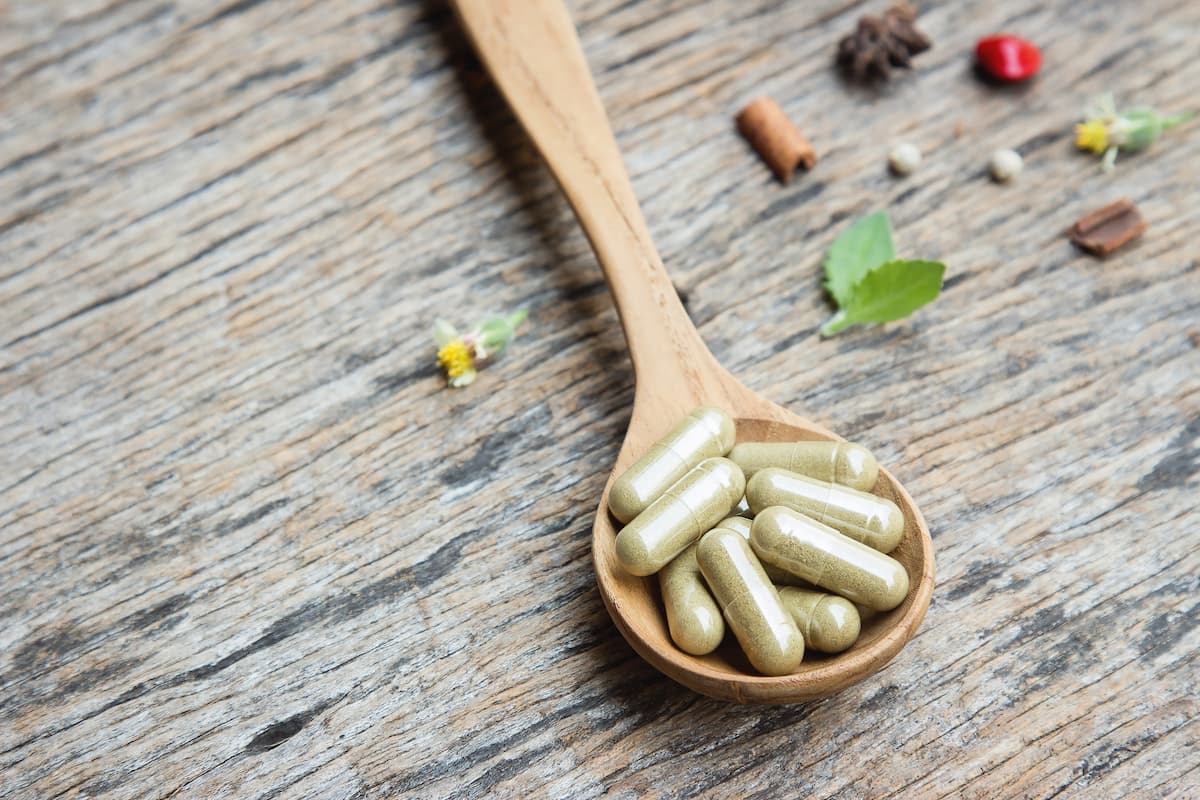
Ashwagandha affects thyroid hormone levels. Find out if you can use it.
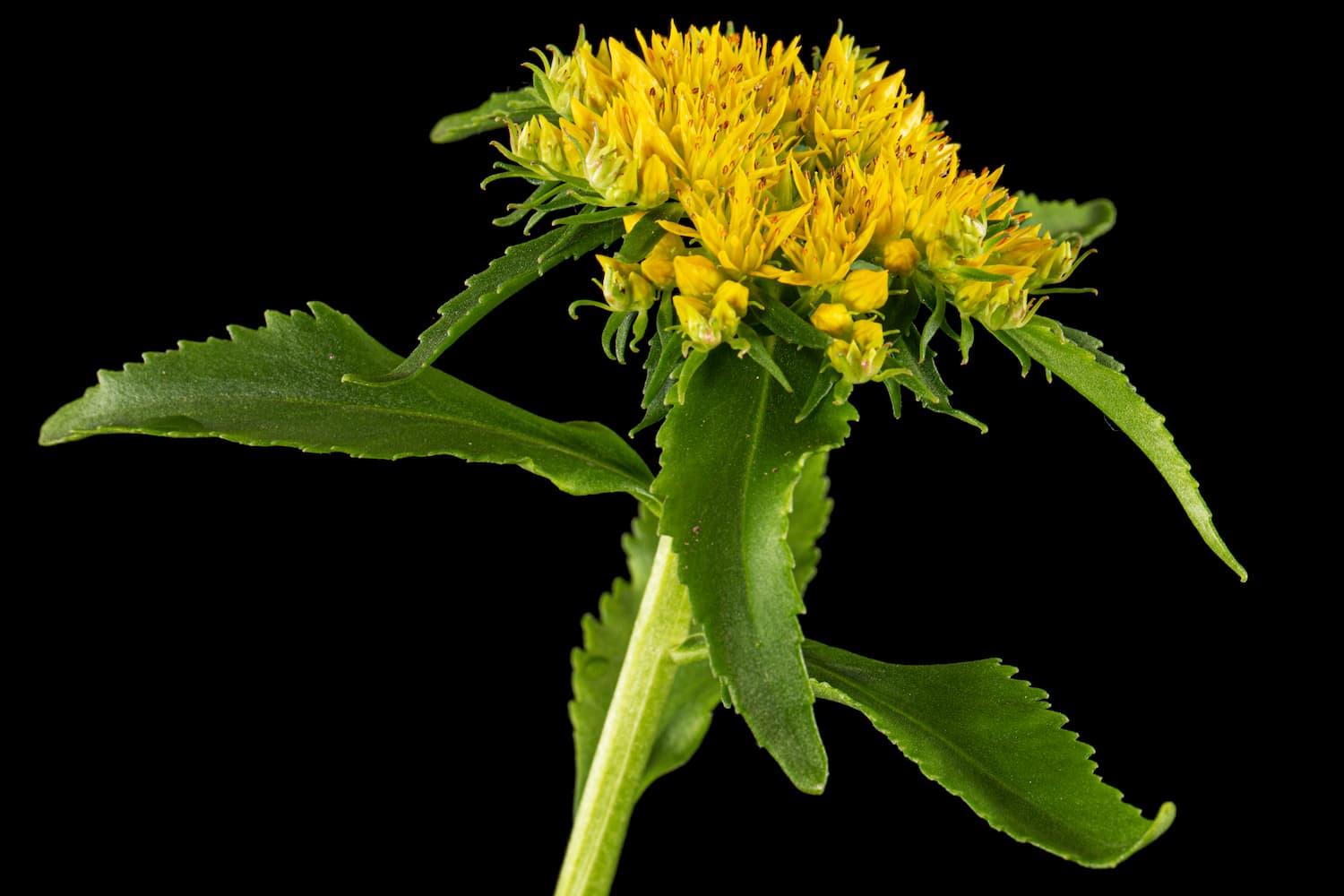
See how mountain pintail can affect your wellbeing.

Check out the opinions of doctors and other professionals about ashwagandha. Also find out what people on the forum think about it.
